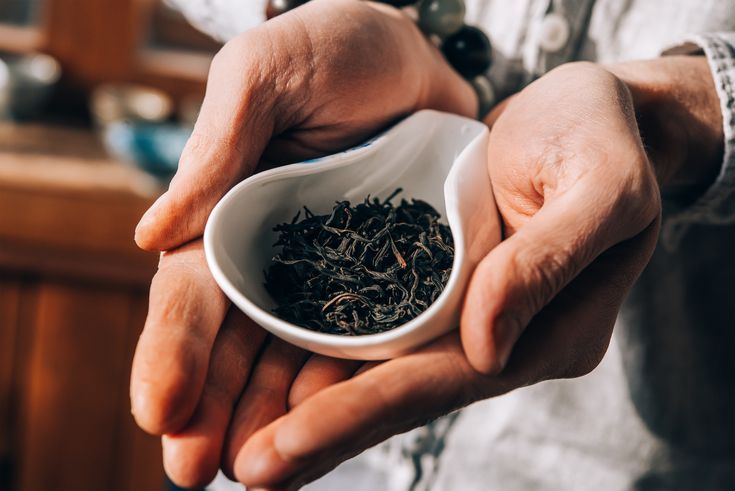Categories
The latest content
-

Customs Clearance & Import Regulations for Bulk Iranian Pinto Beans in EU, Middle East & Africa
..
-

Quality Control & Laboratory Testing Standards for Iranian Pinto Beans
..
-

Logistics & Shipping Solutions for Bulk Iranian Pinto Bean Exports
..
-

Minimum Order Quantity (MOQ) & Bulk Pricing for Iranian Pinto Bean Buyers
..

Tags
Customs Clearance & Import Regulations for Bulk Iranian Tea in EU, Middle East & Africa

When it comes to importing bulk Iranian tea, understanding the customs clearance process and complying with import regulations is crucial for ensuring smooth trade flows. Tea is one of the most highly regulated food products, especially in regions like the European Union, Middle East, and Africa, where strict food safety, labeling, and certification requirements must be met.
At Tamila Agrifood Company, we specialize in helping buyers, distributors, wholesalers, and government procurement agencies navigate the complexities of customs clearance and international import laws, ensuring that every shipment of Iranian tea arrives on time and fully compliant.
Key Customs Requirements in the EU
The European Union (EU) applies some of the world’s most stringent regulations for tea imports. Bulk Iranian tea destined for EU markets must comply with:
✔ EU Food Safety Standards → Testing for pesticide residues, heavy metals, and microbiological safety.
✔ Certification Requirements → ISO 22000, HACCP, and often Organic & Fair Trade certifications for premium markets.
✔ Customs Documentation → Commercial invoice, packing list, Bill of Lading (B/L), phytosanitary certificate, and Certificate of Origin.
✔ Tariff Codes & Duties → Tea imports are classified under specific HS codes, with tariffs depending on trade agreements.
✔ Labeling Compliance → Country of origin, batch number, production/expiry dates, and storage instructions must be clearly stated.
Without meeting these requirements, Iranian tea shipments may face delays, penalties, or rejections at EU ports.
Customs & Import Regulations in the Middle East
The Middle East is one of the largest importers of Iranian tea due to proximity, cultural preference, and strong demand in the HORECA sector (Hotels, Restaurants, Cafés). Key customs requirements include:
✔ Halal Certification – Mandatory for all tea products entering GCC states (Saudi Arabia, UAE, Qatar, Oman, Bahrain, Kuwait).
✔ Health Certificates & Laboratory Testing – Proof that the tea is free from contaminants and safe for consumption.
✔ Country-Specific Import Regulations – For example, UAE requires Dubai Municipality Food Import Approval, while Saudi Arabia enforces SFDA (Saudi Food and Drug Authority) standards.
✔ Customs Duties & VAT – Importers must account for country-specific tariffs and value-added tax.
Tamila Agrifood ensures that all Iranian tea exports to the Middle East come with complete Halal, ISO, and HACCP certifications, making customs clearance smoother and faster.
Customs & Import Regulations in Africa
African countries are rapidly increasing imports of Iranian tea, especially for government food procurement, humanitarian aid, and retail distribution. Customs requirements often include:
✔ Phytosanitary Certificates – Proof that tea is pest-free and safe for agriculture-based economies.
✔ Food Safety Compliance – Many African states adopt Codex Alimentarius standards or mirror EU requirements.
✔ Import Licenses – Required in countries such as Nigeria, Kenya, and South Africa for bulk food imports.
✔ Customs Duties – Duties vary depending on regional trade agreements (e.g., African Continental Free Trade Area - AfCFTA).
By ensuring multi-modal logistics (sea, air, land) and providing all export documents, Tamila Agrifood helps African buyers import Iranian tea without bureaucratic delays.
Essential Documentation for Smooth Customs Clearance
To prevent customs delays or shipment rejections, exporters and buyers must ensure the following documents are always included:
• Commercial Invoice
• Packing List
• Bill of Lading (B/L) or Airway Bill
• Certificate of Origin (issued by Iranian Chamber of Commerce)
• Phytosanitary Certificate
• ISO, HACCP, Halal, and Organic Certifications (as required)
• Health Certificate from the Ministry of Agriculture
At Tamila Agrifood, we provide complete export documentation packages, making the customs process efficient for importers across all regions.
Challenges in Customs Clearance & How to Overcome Them
1. Delays at Ports → Caused by incomplete documents or certification issues.
Solution: Pre-verification of documents by Tamila Agrifood’s compliance team.
2. High Tariffs & Duties → Can increase final costs for importers.
Solution: Strategic trade route planning and leveraging trade agreements.
3. Regulatory Differences → Vary from country to country.
Solution: Country-specific export compliance consulting offered by Tamila Agrifood.
Conclusion
Navigating customs clearance and import regulations for bulk Iranian tea in the EU, Middle East, and Africa requires expertise, certifications, and proper documentation. With Tamila Agrifood Company, importers benefit from:
✔ Fully compliant documentation.
✔ Certified quality (ISO, HACCP, Halal, Organic).
✔ Efficient multi-modal logistics.
✔ Expertise in regional trade regulations.
If you are a wholesaler, distributor, government procurement agency, or HORECA sector buyer, our team ensures that your Iranian tea imports are smooth, fast, and fully compliant with international standards.
Email: tamilaagrifood@gmail.com
Call / WhatsApp for Quotations: +989141858935



